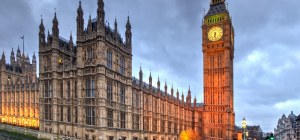46: Great Repeal Bill – You better think
The Lords have now completed all six days of Report stage on the EU (Withdrawal) Bill, inflicting a total of fourteen defeats on the Government in votes on amendments.
We commented on the first three days of Report stage (and six defeats) here. This post reports on the latter three days (and a further eight defeats).
Eight more Government defeats
On Day 4, the Government suffered three defeats, on:
- Amendment 49, moved by Viscount Hailsham, which does three things:
- first, it requires the Government, before concluding the withdrawal agreement, to obtain prior approval by the Commons to the withdrawal agreement and any transitional arrangements, and for the matter to have been considered by the Lords. So far as practicable, this is to take place before the European Parliament has itself debated and voted on the draft withdrawal agreement;
- second, the Government cannot implement the withdrawal agreement unless Parliament has approved it and any transitional measures, by an Act of Parliament; and
- third, if Commons approval isn’t given by 30 November 2018 or the Act has not received Royal Assent by 31 January 2019, or no withdrawal agreement has been reached by 28 February 2019, the Government is to follow any direction on the negotiations approved the Commons and considered by the Lords.
- Amendment 51, moved by Lord Monks, which modifies clause 9 such that secondary legislation to implement the withdrawal agreement can only be used after Parliament has approved ‘a mandate for negotiations about the UK’s future relationship with the EU’.
- Amendment 59, moved by Lord Dubs, which inserted a new clause to require the Government to negotiate to maintain the effect of ‘the Dublin Regulation’, which allows unaccompanied child refugees in one EU member state to join relatives in another.
But there was some good news for the Government on Day 4: it won a vote against Lord Newby’s Amendment 50, which would have added a new clause to the Bill giving both Houses a vote on holding a referendum on whether to accept the withdrawal agreement.
On Day 5, the Government lost one vote during the debate, on Amendment 88, moved by Lord Patten, which inserted a new clause into the Bill explicitly preserving North-South co-operation in Ireland after Brexit and preventing the establishment of new border arrangements which did not exist before exit day, unless agreed between the UK Government and the Government of Ireland.
On Day 6, the Government lost four further votes:
- Amendment 93, moved by the Lord Bishop of Leeds, inserts a new clause before Clause 14 stating that the Bill, once enacted, does not prevent the United Kingdom ‘replicating in domestic law any EU law made on or after exit day’ or ‘continuing to participate in, or have a formal relationship with, the agencies of the European Union after exit day.’
- Amendment 95 (and related amendment 99), moved by the Duke of Wellington, which changes the definition of ‘exit day’ from ’29 March 2019′ back to the original drafting, namely ‘such day as a Minister of the Crown may by regulations appoint’.
- Amendment 110A, moved by Lord Alli, to amend Clause 19 such that the main provisions of the Bill do not come into force until ‘it is a negotiating objective of the Government to ensure that an international agreement has been made which enables the United Kingdom to continue to participate in the European Economic Area after exit day.’
- Amendment 70, moved by Lord Lisvane, to amend Schedule 7 to strengthen scrutiny of secondary legislation proposed by Ministers under the Bill. The amendment requires the Minister to lay in Parliament a draft of the SI and a memorandum setting out why the ‘negative procedure’ applies (in effect, that the SI becomes law unless Parliament objects). If either House, including a relevant Committee, objects to that negative process being used, then the ‘affirmative procedure’ (which requires Parliament to approve the legislation) must be used instead.
MPs to think again
All Government defeats are important, but three of those inflicted by the Lords are likely to have a significant impact when the Bill returns to the Commons.
The Government is certain to try to overturn Lord Kerr’s Amendment 1 (on Customs Union membership), Viscount Hailsham’s Amendment 49 (giving Parliament a greater say in the conduct of negotiations) and Lord Alli’s Amendment 110A (UK remaining in the EEA). Considered together, these amendments can be seen as part of a coherent strategy to require MPs test the level of support in the Commons for the Government’s Brexit strategy. Of course, making the Commons think again on important matters is precisely the Lords’ role. As the Lord Bishop of Leeds said in debate:
‘I find the repeated charge that this House is trying to impose on the Government, or tell the Government what to do, tiresome. It seems to me – I may be simple – that the remit and responsibility of this House is to send back to the Government and to the other House arguments that may make them think again. Otherwise, we have no purpose.’
The Government may face a specific difficulty in seeking to overturning Amendment 49: there may be enough soft Brexit/Remain Tory MPs willing to rebel now, in good conscience, in order to pin down in law that Parliament gets a conclusive say on the final deal, safe in the knowledge that they can always support the Government by voting for the deal when required to do so.
On the one hand, while Amendment 110A has made the headlines, we suspect the Government will succeed in overturning it. It has long been considered that there is no outright majority in the Commons for the hard Brexit favoured by the Government, with many MPs feeling obliged to implement the referendum instruction to ‘Leave’ but concerned about the potential economic and social consequences of doing so, but we suspect there is no Commons majority in favour of EEA membership. However, any vote on Customs Union membership looks too close to call – particularly given ongoing (and public) Cabinet divisions on the Government’s preferred approach, and the need to solve the Irish border issue.
Government amendments on devolution
On Days 5 and 6, the Lords agreed a host of government amendments modifying how the Bill deals with the devolution. These have now been agreed with the Welsh Government, but continue to be opposed by the Scottish Government (although Government hopes the Scottish Government will change its mind).
We discussed these changes when they were initially debated on Day 9 of Committee stage. In summary, they provide that where powers are currently devolved under the Scotland, Wales and Northern Ireland Acts, this will remain the case by default after exit day. UK Ministers will, however, gain a new power to use secondary legislation to suspend devolved competence in a specified area for a period of up to five years, in order to rule out the possibility of UK-wide frameworks being undermined by devolved legislation. This power should ‘normally’ only be used with the consent of the devolved legislatures (echoing the Sewell convention, which applies to primary legislation) and following a ‘collaborative process’ (to take place from June 2018 onwards). If the UK Government decides to introduce restrictions without consent, it has to explain why to Parliament. The power also expires two years after exit day.
The amendments were accompanied by an intergovernmental agreement published by the Government, setting out how the four governments of the UK will approach establishing new frameworks during this time.
Other Government amendments
Over the latter three days of Report stage, the Lords also accepted a large number of other Government amendments to the Bill. Many of these are minor consequential and technical amendments, but we would pick out the following:
- Amendments 53, 53A and 54A amended clause 9. Amendment 53 removed a Minister’s power to modify the Bill itself by regulations pursuant to the withdrawal agreement. Amendment 53A, provided that regulations under clause 9 could not impose or increase fees (not just taxes). Amendment 54A provides that such regulations may not establish new public authorities.
- Amendments 86, 86A and 87 amended Minister’s power under clause 17 to make consequential amendments. Amendments 86 and 87 provide that ministers may only make regulations were ‘necessary’ rather than ‘appropriate’ (consequent on Amendment 31). Amendment 86A adds a ‘sunset clause’ of ten years to that ministerial power.
- Amendments 93A, 93B, 93C and 98 to clarify types of legislation that are included in the definition of ‘enactments’ and ‘subordinate legislation’ in Clause 14(1) of the Bill.
Third reading
Third reading – a final chance for the Lords to amend the Bill further – is scheduled for 16 May, after which the Bill, as amended, will be sent to the Commons. Media reports suggest that the Government will seek to reverse the amendments made in the Lords at the earliest opportunity – possibly as early as 23 May – and in event before the next EU summit on 28 and 29 June.











